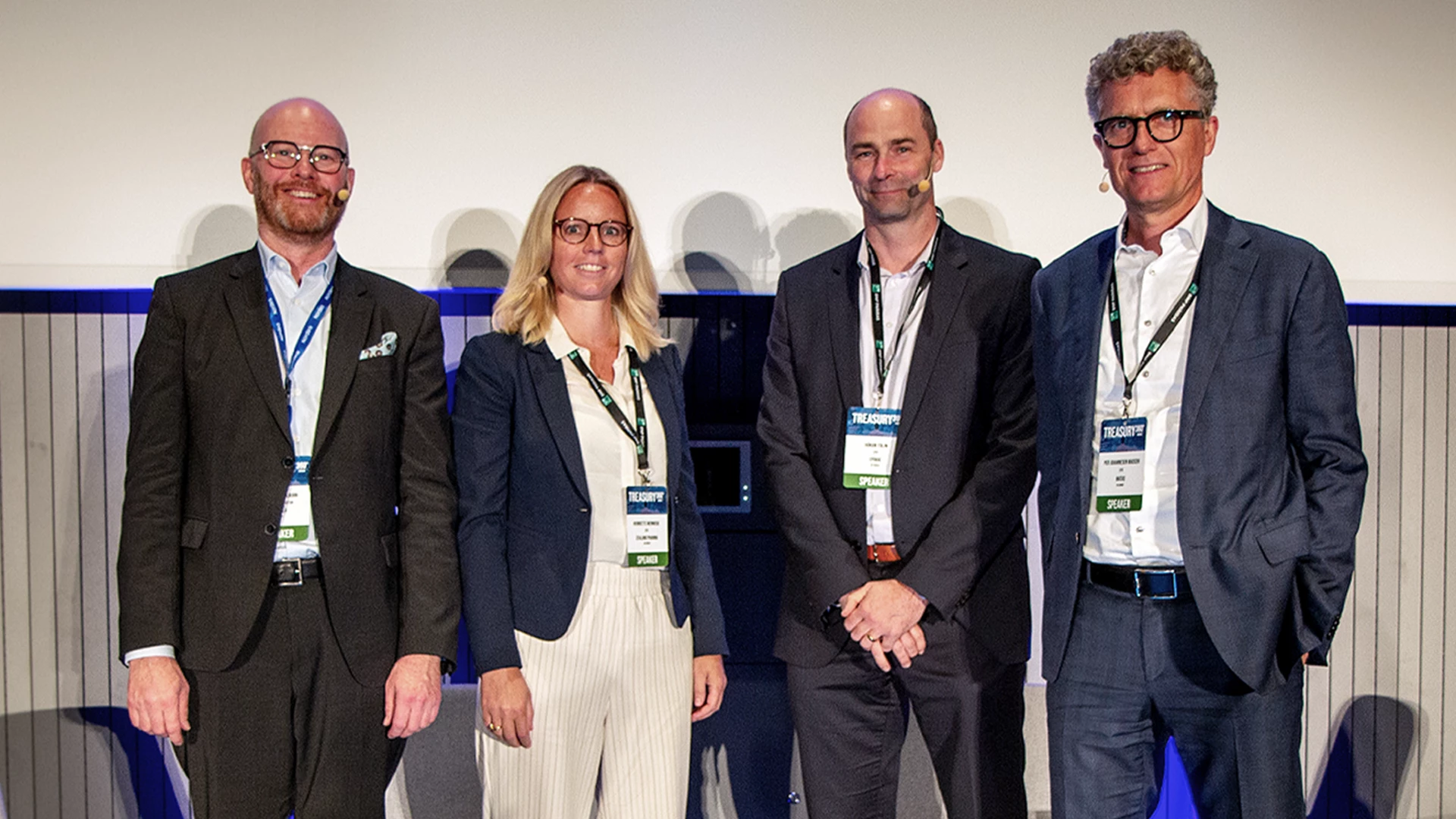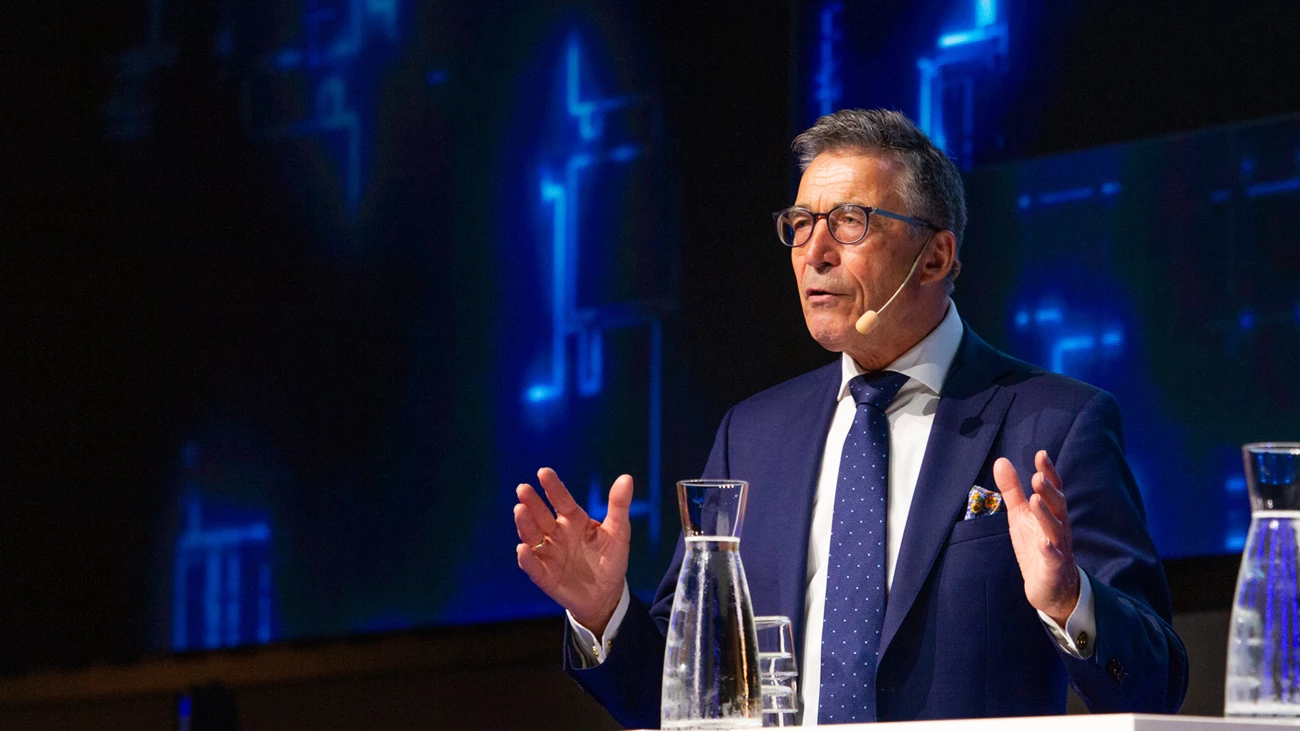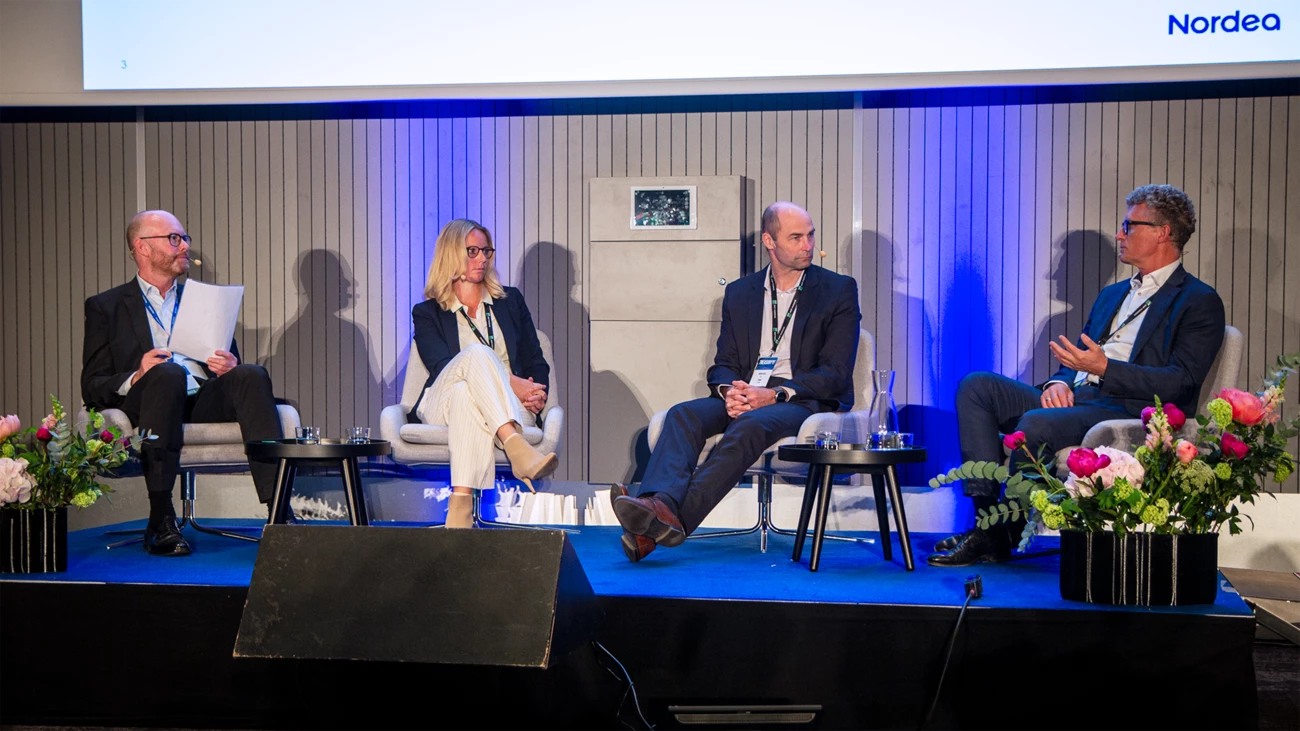Industry megatrends
Panel moderator Henrik Immelborn asked the three CFOs what they see as the “next big thing” likely to transform their sectors. For beauty and well-being retailer Matas, it is using artificial intelligence (AI) to enhance the omnichannel customer experience, for example, to create a more personalised shopping experience for consumers.
“We believe omnichannel will be the winning model going forward,” said Matas CFO Per Johannesen Madsen. He noted that Matas invests 3-4% of its revenues in capex in this area, the bulk going towards new technology, automation and distribution.
“This requires a lot more trust that something is going to come out of the technology investment. That’s different from in the past,” he added.
For Epiroc, sustainability is the gamechanger. The Sweden-based manufacturer of mining equipment is focused on helping miners reduce their CO2 emissions, for example, by shifting to electric vehicles and equipment. The company invests around 3% of its revenue on R&D related to electrification, digitalisation and automation.
“Sustainability will have a huge impact on us as a company and the whole industry,” Håkan Folin said.
Demographics are the key driver for Zealand Pharma, which is focused on developing the next generation of medicines for treating obesity.
“Today, 50% of the population in the US is obese. If you look at the trajectory, Europe is just 15 years behind. We’ve been investing in this for 10 years. In pharma, you need to make investments early to be ready at the right time,” Henriette Wennicke said.





